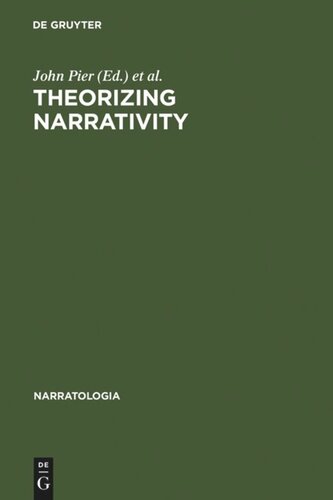

Most ebook files are in PDF format, so you can easily read them using various software such as Foxit Reader or directly on the Google Chrome browser.
Some ebook files are released by publishers in other formats such as .awz, .mobi, .epub, .fb2, etc. You may need to install specific software to read these formats on mobile/PC, such as Calibre.
Please read the tutorial at this link: https://ebookbell.com/faq
We offer FREE conversion to the popular formats you request; however, this may take some time. Therefore, right after payment, please email us, and we will try to provide the service as quickly as possible.
For some exceptional file formats or broken links (if any), please refrain from opening any disputes. Instead, email us first, and we will try to assist within a maximum of 6 hours.
EbookBell Team

0.0
0 reviewsTheorizing Narrativity is a collective work by an international array of leading specialists in narrative theory. It provides new perspectives on the nature of narrative, genre theory, narrative semiotics and communication theory. Most contributions center on the specificity of literary fiction, but each chapter investigates a different dimension of narrativity with many issues dealt with in innovative ways (including oral storytelling, the law, video games, causality, intertextuality and the theory of reading). There are chapters by Gerald Prince on narrativehood and narrativity, Meir Sternberg on the narrativity of the law-code, Werner Wolf on chance and Peter Hühn on eventfulness in fiction, Jukka Tyrkkö on kaleidoscope narratives, Marie-Laure Ryan on transfictionality and computer games, Ansgar Nünning and Roy Sommer as well as Monika Fludernik on the narrativity of drama, Beatriz Penas on (non)standard narrativities, David Rudrum on narrativity and performativity, Michael Toolan on textual guidance, John Pier on causality and retrospection, and José Ángel García Landa on retelling and represented narrations.